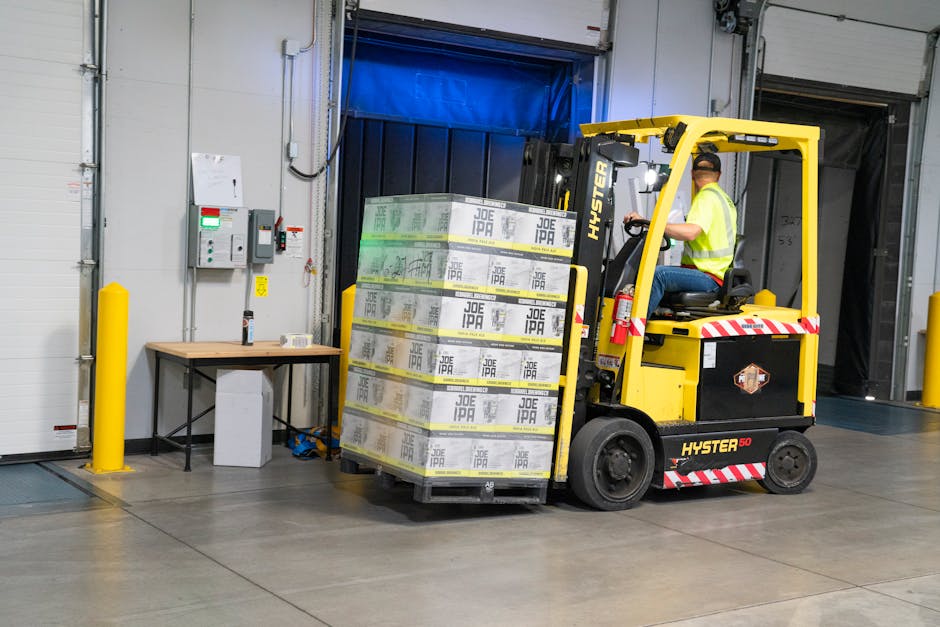Retention strategies for forklift
Kuwait’s logistics and warehousing sector is booming. Consequently, skilled forklift operators are in high demand. However, companies face a critical challenge. They struggle to keep their trained operators from leaving for competitors. This high turnover disrupts operations and increases costs significantly. Retention strategies for forklift operators are no longer optional. They are a fundamental business necessity for sustainable growth.
Additionally, the unique labor market in Kuwait adds complexity. Factors like the kafala (sponsorship) system and diverse expatriate workforce influence employment dynamics. Furthermore, understanding local cultural expectations is crucial for creating effective retention plans. This guide provides a comprehensive framework for developing robust retention strategies for forklift operators in Kuwait. It offers actionable steps to build a loyal and highly skilled workforce.
Understanding Retention strategies for forklift
Operator retention is a strategic business function. It focuses on creating an environment where employees choose to stay. This goes beyond just offering a competitive salary. It involves holistic attention to an operator’s professional and personal well-being. High turnover directly impacts safety, productivity, and profitability. Therefore, a proactive approach is essential.
Moreover, the cost of replacing a forklift operator is substantial. It includes recruitment fees, training time, and lost productivity. There is also the risk of accidents with new, inexperienced hires. Implementing targeted retention strategies for material handling personnel mitigates these risks. It protects your investment in human capital.
Retention strategies for forklift Benefits
Effective operator retention offers immense advantages. First, it leads to a more experienced and efficient workforce. Seasoned operators handle complex tasks faster and with fewer errors. They also require less supervision. This boosts overall operational throughput and quality.
Additionally, a stable team enhances workplace safety. Experienced operators are more familiar with safety protocols and hazard recognition. Consequently, this reduces the frequency of workplace incidents and associated costs. Long-term staff also foster a stronger, more positive company culture. They become mentors for new hires.
How Retention strategies for forklift Works
A successful framework is multi-faceted. It addresses financial, professional, and environmental factors. The goal is to make employees feel valued and see a future with your company. This process begins from the moment an operator is hired.
First, competitive and fair compensation is the foundation. Next, clear career progression paths must be established. Furthermore, continuous training and recognition programs are vital components. For instance, linking skill advancement to pay increases is a powerful motivator. This structured approach to talent management ensures operators remain engaged.
Best Retention strategies for forklift Practices
Adopting industry best practices is crucial for success. One key practice is implementing a transparent career ladder. Operators should understand how to advance from novice to expert levels. Each level should come with defined responsibilities and corresponding financial rewards.
Another best practice is investing in regular, certified training. This could include advanced forklift certifications or safety courses endorsed by the International Labour Organization guidelines. Additionally, creating a feedback loop where operators can voice concerns without fear is essential. This demonstrates that their opinions matter and are acted upon.
Retention strategies for forklift Implementation
Turning strategy into action requires a clear plan. Start by conducting a thorough review of your current turnover rates and exit interview data. This will identify the specific reasons operators are leaving. Next, form a cross-functional team to develop the retention program.
Then, communicate the new initiatives clearly to all operators. For example, launch a formal “Operator of the Month” program with meaningful rewards. Furthermore, partner with local institutes for accredited training. You can access professional resources to help design these programs. Finally, set measurable KPIs to track the program’s effectiveness over time.
Advanced Retention strategies for forklift Strategies
For companies seeking a competitive edge, advanced strategies are key. One approach is to offer family-based benefits. Since many operators are expatriates, support with family residency or schooling can be a powerful retention tool. This addresses a major life concern for your workforce.
Another advanced tactic is leveraging technology. Use data analytics to predict flight risk among your top performers. Meanwhile, implement gamification in training and daily operations to boost engagement. Understanding broader economic trends from sources like the U.S. Department of Commerce trade information can also inform your long-term strategy. These sophisticated methods create a deeply embedded culture of retention.
Retention strategies for forklift Success Tips
Achieving long-term success requires consistency and adaptability. First, leadership must be fully committed and visibly champion the initiatives. Operator retention is not just an HR function; it is a management priority. Regularly celebrate successes and milestones to maintain momentum.
Additionally, be prepared to adapt your strategies. The market and employee expectations evolve. For example, consider regional benchmarks from the UAE government employment regulations. Furthermore, prioritize operator health by adhering to World Health Organization workplace standards. Finally, never stop gathering feedback. Continuous improvement is the hallmark of a truly successful retention program. For tailored advice, consider an expert consultation.
Future of Retention strategies for forklift
The future of operator retention is increasingly holistic and tech-driven. We will see a greater emphasis on mental health and overall well-being programs. Automation will handle more repetitive tasks. Therefore, the role of the operator will shift towards supervision and problem-solving.
Consequently, retention strategies will focus on upskilling operators for these new, higher-value roles. Companies that invest in this transition will retain the best talent. Data from the World Bank economic reports often highlight the economic value of a skilled workforce. The companies that master these evolving retention strategies for forklift operators will lead the industry.
Frequently Asked Questions
What is the biggest mistake companies make with operator retention?
The biggest mistake is focusing only on salary. While pay is important, operators also leave due to poor management, lack of career growth, and unsafe working conditions. A holistic retention strategy addresses all these areas.
How can I measure the ROI of my retention strategies?
Track key metrics like turnover rate, cost per hire, and training costs. Then, compare these numbers before and after implementing your strategies. A decrease in turnover costs directly shows a positive ROI from your retention efforts.
Are retention strategies different for expatriate operators?
Yes, they often require additional considerations. Expatriate operators value support with housing, family relocation, residency permits, and end-of-service benefits. Addressing these specific needs is a powerful component of retention strategies for forklift operators from abroad.
What is a simple first step I can take today?
Conduct stay interviews with your best operators. Ask them what they enjoy about their job, what would make them leave, and what would make them stay. This immediate feedback is invaluable for shaping effective retention strategies.
How does safety impact operator retention?
Safety is critically important. Operators will not stay long at a company where they feel unsafe. A strong safety record, proper equipment maintenance, and thorough training show that you value your employees’ well-being, which is a key retention driver.
Can small businesses implement these strategies effectively?
Absolutely. Many effective retention strategies, like recognition programs, creating a positive culture, and providing clear communication, are low-cost. The key is consistency and genuinely valuing your employees, which any business of any size can do.
Conclusion
Mastering retention strategies for forklift operators is a decisive competitive advantage in Kuwait’s dynamic market. It requires a committed, strategic approach that values operators as essential assets. By implementing competitive compensation, clear career paths, and a safe, respectful work environment, you can significantly reduce turnover.
Therefore, the time to act is now. Begin by assessing your current situation and building a tailored plan. The long-term benefits of a stable, skilled, and motivated workforce are undeniable. They drive productivity, enhance safety, and secure your company’s future. To start transforming your workforce strategy, schedule appointment with our specialists today.




